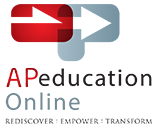Level 2 Diploma for the Early Years Practitioner
This OFSTED recognised qualification prepares learners to work with children from birth to five years, with knowledge of children up to seven years and provide learners with the knowledge and understanding of babies and young children from birth to 7 years of age with applied knowledge in the Early Years.
Upon successful completion of this qualification learners can enter the workforce as a qualified Level 2 Early Years Practitioner or continue to study for a Level 3 Diploma holding Early Years Educator status.
Learners do not need to have previous experience or qualifications in working with children to undertake this qualification.
Department for Education (DfE) full and relevant approval
This qualification meets the Department for Education (DfE) Level 2 full and relevant criteria that set out the knowledge, understanding and skills that a practitioner must demonstrate to achieve an Early Years Practitioner (Level 2) qualification and be considered as qualified to support young children aged from birth to five in the Early Years Foundation Stage (EYFS).
Upon completion of the qualification, learners can be counted towards the statutory framework for the EYFS staff: child ratio at Level 2.
Aims of the course
These are to:
- Understand the roles and responsibilities of the Early Years Practitioner
- Gain knowledge, understanding and skills development to support the health and safety of children from birth to seven years.
- Gain knowledge and understanding required to support the safeguarding, protection and welfare of children from birth to seven years.
- Develop knowledge, understanding and skills to support the planning and delivery of activities, purposeful play opportunities and educational programmes.
- Develop knowledge, understanding and skills for best practice supporting children with Special Educational Needs and Disability (SEND) in the early years.
- Gain knowledge, understanding and skills required to promote positive behaviour in Early Years Settings
- Develop employability skills
Structure
The units for this programme have been selected to offer learners the best opportunities for progression both academically and professionally. In order to achieve the Level 2 Diploma for the Early Years Practitioner learners must complete the 14 mandatory units, which will gain them a total total of 37 credits.
The units are structured as follows:
- Roles and responsibilities of the Early Years Practitioner
- Health and safety of babies and young children in the Early Years
- Equality, diversity and inclusive practice in Early Years Settings
- Safeguarding, protection and welfare of babies and young children in Early Years Settings
- Understand how to support children’s development
- Support care routines for babies and young children
- Support the planning and delivery of activities, purposeful play opportunities and educational programmes
- Promote play in an Early Years Setting
- Support well-being of babies and young children for healthy lifestyles
- Support babies and young children to be physically active
- Support the needs of babies and young children with Special Educational Needs and Disability
- Promote positive behaviour in Early Years Settings
- Partnership working in the Early Years
- Support the needs of the child in preparing for school
Experience in the Workplace
Learners will need to be working, volunteering or on practical placement to show competence in both knowledge and skills. We recommend learners complete 250 placement hours whilst undertaking this qualification.
Placement opportunity must allow for sufficient skills application with babies and young children to meet the assessment criteria for the qualification.
How the course is delivered
This Level 2 Diploma for the Early Years Practitioner is delivered via a Virtual Learning Environment (VLE) which provides access to case studies, learning materials and activities, presentations and web links. Online tutor support and guidance is provided throughout the course, where learners can interact with the tutors, get feedback on their progress and submit their work electronically. This helps you to build the relevant skills progressively, as you receive feedback and support from your tutor during this time. As the course is delivered online, this enables learners to study any time, any place through immediate access to VLE.
Assessment
All units will be internally assessed using a range of methods. Knowledge-based outcomes can be assessed using non-mandatory assessment tasks. Skills-based outcomes must be achieved with reference to a real work environment and must include direct observation within the workplace.
Opportunities For Progression
This qualification allows progression on to the Level 3 Early Years Educator qualifications and other relevant Level 3 qualifications relating to Early Years and child care.
Career Opportunities
This qualification allows a learner to count towards the Level 2 ratio as a qualified Level 2 Early Years Practitioner across the Early Years Workforce
Learners may work under supervision in a variety of roles such as:
- Nursery Practitioner
- Classroom Assistant
- Pre-school Practitioner



